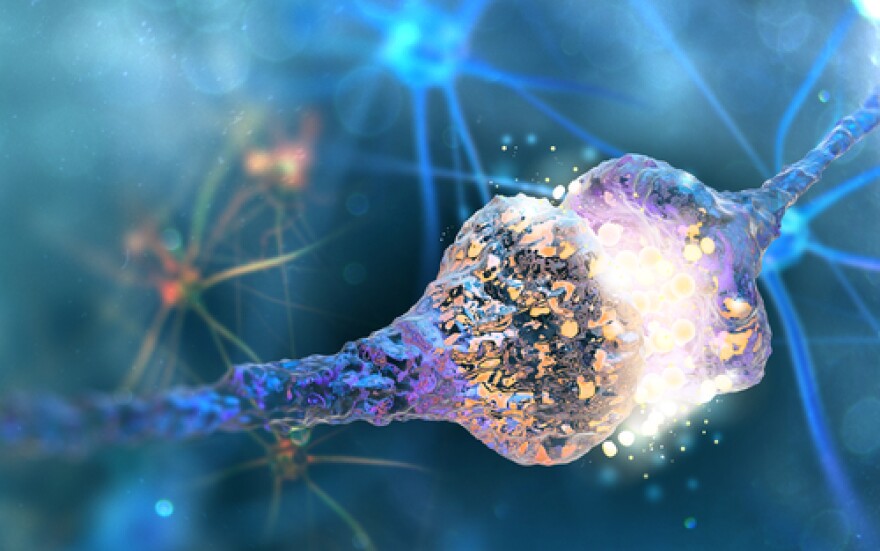You may think of pain as just pain. How you experience that pain, though, might depend on whether you're a man or a woman.
A new study from the University of Texas at Dallas shows that the mechanisms that drive pain appear to be different for the two genders.
UT Dallas neuroscientist Ted Price offers a look into the research.
Interview Highlights
How pain differs for men and women
In the study, we concentrate on trying to understand how acute (temporary) pain can turn into chronic (ongoing) pain. Acute pain seems to be very similar between males and females, but the mechanisms that cause pain to persist and become chronic do seem to be quite different.
The specific study that we're talking about we did in preclinical models using mice. And what we found was that the mechanism driving how pain became chronic in males and in females involves the dopamine system. Dopamine is a neurotransmitter that modulates many things; many people know about it because of Parkinson's disease.
What we found was that a certain kind of dopamine receptor plays a key role in modulating chronic pain or producing chronic pain in males and a completely different receptor plays a role in doing the same thing in females. So it's the same neurotransmitter but different receptors.
On what causes the body to register pain:
When you stub your toe, it's a relatively simple situation: You stub your toe and the signal goes into your spinal cord and it goes on up to your brain. And as far as we know that happens exactly the same in men and women; there is no difference in those types of circuits.
The problem would be if you happen to stub your toe and you did it on the side of a piano, and the leg went out, and the piano fell on your foot, and three months later you're still hurting cause the piano would cause a major injury — that's where things seem to diverge between men and women.
In men, certain pathways are engaged that cause the pain to persist. If you still have pain three months after, by most current definitions that would be chronic pain. And [those pathways] seem to be much different in women.
https://www.youtube.com/watch?v=I7wfDenj6CQ
On medicine being tailored for the sexes:
One of the things that we're really excited about is there's a new class of therapeutics that are being close to moving on the market for migraine. These are the anti-calcitonin and gene-related peptide antibodies; this peptide is well known to play a role in migraine. There have been a lot of clinical trials and we have a lot of evidence from our lab that those therapeutics may actually be effective in lots of different of types of chronic pain in females — and not effective in males at all.
So we're excited that when these get approved that physicians interested in doing clinical trials could use these for basically off-label use and potentially demonstrate that they can be effective for other types of pain in females. We would predict, based on what we know from the work we're doing in the lab right now, that they could be effective for things like post surgical pain — in females, not males.
Interview responses have been lightly edited for clarity and length.






